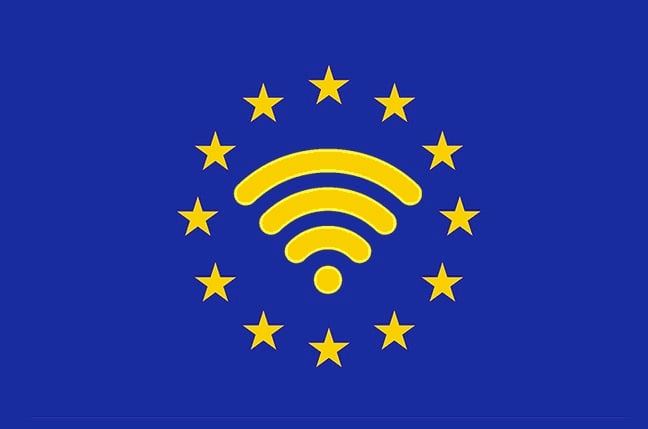Europe To Consult On Making Big Tech Pay For The Networks It Floods

The European Union yesterday decided it's time to start "laying the ground for the transformation of the connectivity sector" in the region with three initiatives – one of which codifies the idea that Big Tech should pay for the networks that carry its traffic.
Carriers around the world point out that they are low-margin businesses that must find mountains of capital every few years to build new mobile networks as next-gen standards emerge – and that those networks make it possible for the likes of Google, Apple, Amazon, Meta, and Netflix to enjoy vastly superior margins and profits. Big Tech also dominates network traffic, collectively generating more than half of the stuff traversing carriers' wires and fibers.
The European Telecommunications Network Operators' Association (ETNO) and the GSM Association both called for action last year. South Korea, meanwhile, has taken a lead on the matter with a plan to charge network access fees to Netflix and others.
Big Tech usually pushes back on such arguments with three points: they already spend plenty on submarine cables – a part of the internet carriers never pay for and cannot do without; their capital requirements are hefty, too, as shown by their giant outlays on datacenters and the kit inside them; and making content providers pay is a disincentive for them to make content and/or could make it more expensive.
US-based tech companies have painted South Korea's plans – and similar ideas floated elsewhere – as strangely aimed only at American-born firms and therefore representing unfair competition and industry policy.
The European Commission (EC) has termed its investigation of the issue "a broad exploratory consultation on the future of the connectivity sector and its infrastructure" and promised "open dialog with all stakeholders about the potential need for all players benefitting from the digital transformation to fairly contribute to the investments in connectivity infrastructure."
But the dialog has begun, meaning Friday drinks at the GSM Association and ETNO are likely to be quite celebratory this week.
- European carriers again call for Big Tech to fund network builds
- Telcos fear Big Tech will bleed them until they can’t afford network builds
- Euro-telcos call on big tech to help pay for their network builds
- Netflix shows South Korea a rerun of 'We Won't Pay Your Telcos For Bandwidth'
The EC has also replaced its 2014 Broadband Cost Reduction Directive with a "Gigabit Infrastructure Act" aimed at reducing the cost of building fast networks, and published a draft Gigabit Recommendation "which seeks to provide guidance to National Regulatory Authorities on the conditions of access to telecom networks of operators with significant market power, in order to incentivize faster switch-off of legacy technologies and accelerated Gigabit networks deployment."
The two Gigabit announcements are expected to accelerate network replacement projects so carriers can switch off legacy networks within two or three years. That's not far away, perhaps demonstrating why carriers – and now the EC – think Big Tech dipping into its pockets could help speed things up. ®
From Chip War To Cloud War: The Next Frontier In Global Tech Competition
The global chip war, characterized by intense competition among nations and corporations for supremacy in semiconductor ... Read more
The High Stakes Of Tech Regulation: Security Risks And Market Dynamics
The influence of tech giants in the global economy continues to grow, raising crucial questions about how to balance sec... Read more
The Tyranny Of Instagram Interiors: Why It's Time To Break Free From Algorithm-Driven Aesthetics
Instagram has become a dominant force in shaping interior design trends, offering a seemingly endless stream of inspirat... Read more
The Data Crunch In AI: Strategies For Sustainability
Exploring solutions to the imminent exhaustion of internet data for AI training.As the artificial intelligence (AI) indu... Read more
Google Abandons Four-Year Effort To Remove Cookies From Chrome Browser
After four years of dedicated effort, Google has decided to abandon its plan to remove third-party cookies from its Chro... Read more
LinkedIn Embraces AI And Gamification To Drive User Engagement And Revenue
In an effort to tackle slowing revenue growth and enhance user engagement, LinkedIn is turning to artificial intelligenc... Read more

